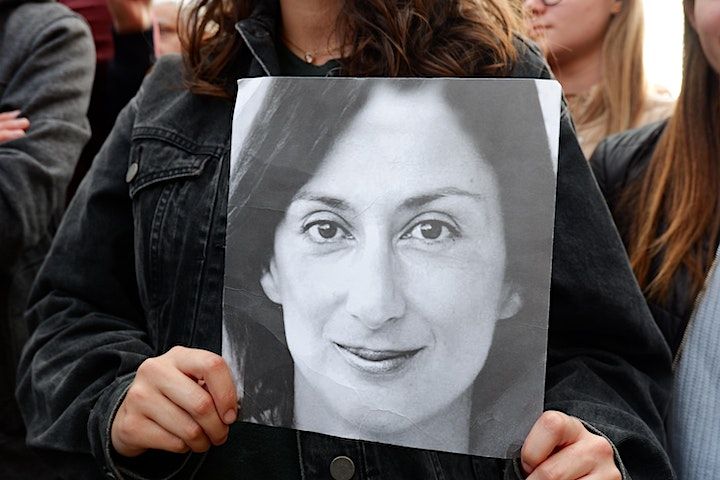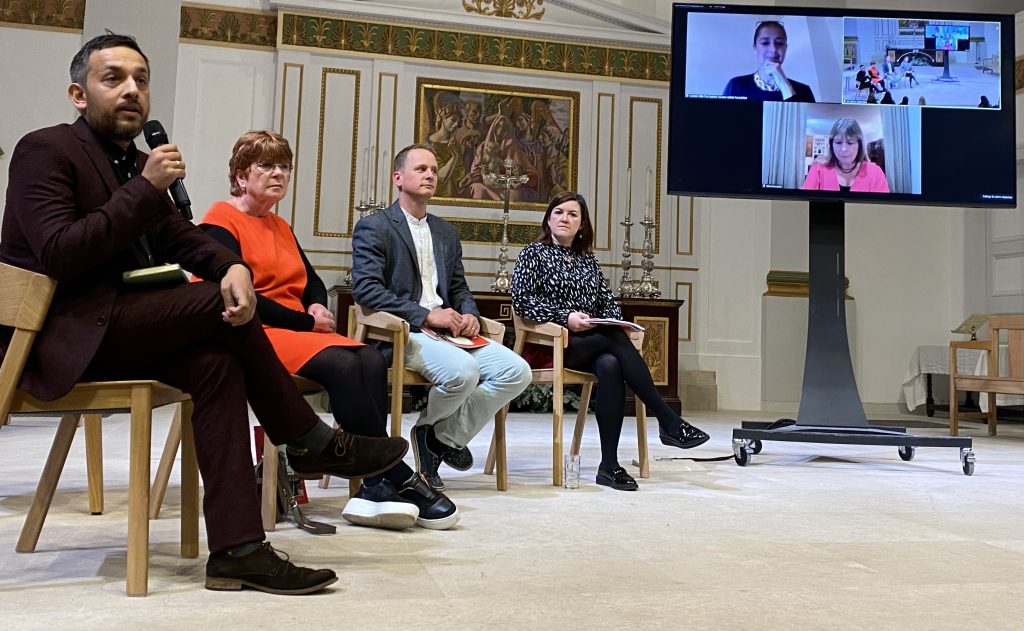We joined the event “Daphne: Inspiring an Anti-SLAPP movement across Europe” which was a part of the Daphne Festival that marked the fifth anniversary of Maltese investigative journalist Daphne Caruana Galizia’s assassination.

Daphne Caruana Galizia’s death shocked many in Europe and in the World. However, it should be seen in the light how threats become a part of investigative journalists’ lives. While the Daphne Festival, which brought together human rights and press freedom organisations, journalists, artists, activists and campaigners from around the world celebrated the legacy of her work and highlight the ongoing campaign for justice, it also covered the form of threats that journalists face and the means to fight it in a panel.
The event “Daphne: Inspiring an Anti-SLAPP movement across Europe” set off with underlining how Daphne had 47 open libel cases against her at the time she was assassinated. The event underlined that legal threats named “SLAPPs” against investigative journalists are a strategy to deter journalism and have “became a tipping point for public awareness on the issue.”
The panel chaired by Nik Sunil Williams from Index on Censorship hosted excellent speakers to reflect on the topic. Daphne’s sister Corinne Vella started the talk with underlining the legal challenges she faced before her death. She stated how misogyny also shaped the type of threats that Daphne has received. Vella argues NGOs were working on SLAPPs for years but Daphne’s death increased the focus. Very persistent NGOs worked on this continuously and this has led to certain policy outcomes in Europe.

Clare Rewcastle Brown, an independent investigative journalist who has been uncovering financial crime and corruption reflected on the threats she faced as a journalist. As the call for event states between 2017-19, Rewcastle Brown was pursued through the London libel courts by a Malaysian politician in light of her reporting on the 1MDB scandal, which brought down the then Malaysian government and led to the arrest and imprisonment of the then Prime Minister. She reflected on the legal threats and argued that it can be an intimating experience shaped by legal moves, which big law firms in London are taking advantage. She underlined: “This threat hanging over a journalist is like a weapon.”
She discussed because you usually deal with criminally rich people they do not stop with legal battles they can also hire PR companies. They can also hire private investigators or use an online campaign for derogatory framing. They can use non-existent social media characters for de-framing.
Investigative journalist Franz Wild talked about his experience on the Bureau of Investigative Journalism and openDemocracy report that a fund set up by Nazarbayev was at the head of a network of corporate vehicles that held billions in assets through a UK-registered company. He reflected on how the Nazarbayev Fund and that UK holding company have issued defamation proceedings against the Bureau and openDemocracy.
Caroline Kean, the founding partner of the law firm Wiggin, reflected on her broader legal work for protecting journalism and how she supported journalists in light of increasing legal threats. Caroline stated how the threats have evolved over time. The privacy law and judge made law was important in shaping the change.
Susan Coughtrie from the Foreign Policy Centre (FPC) started her talk with underlining how “the UK has become a hub unfortunately for laundering money.” This is also led by state elites who are not known for providing a political context for freedom of press. The event call underlined how the Government’s consultation and the subsequent response was shaped the findings of a 2020 survey by the Foreign Policy Centre (FPC). The report had demonstrated that legal threats were the greatest challenge to reporters. Moreover, the UK was a leading international source of those threats. She also shared the findings of their recent report: “London Calling’: The issue of legal intimidation and SLAPPs against media emanating from the United Kingdom.”

